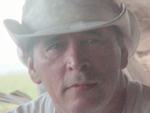News
Who's who: Len Fowler
For one whose connection to the ATM industry has been fairly fleeting, Len Fowler's impact has been surprisingly lasting. His company, T-Base Communications, played a key role in designing the user interface for the world's first two audio ATMs.
May 7, 2006
For one whose connection to the ATM industry has been fairly fleeting, Len Fowler's impact has been surprisingly lasting.
Fowler's company, T-Base Communications, worked with NCR to design the user interface for the world's first audio-enabled ATM, deployed by Canada's Royal Bank in 1997. Two years later, T-Base designed the interface for the first audio ATM in the U.S., a Diebold machine installed by the San Francisco Credit Union.
 |
Len Fowler |
The introduction of those machines convinced the advocacy community that the technology existed to make ATMs more accessible. In several lawsuits filed against financial institutions, groups like the National Federation for the Blind used these examples as proof that it was possible to make ATMs "talk."
The advocacy group's actions led to a proposed revision of the Americans with Disabilities Act. The federal government is currently in the final stages of a process that is expected to result in a requirement for "talking" ATMs under the ADA. Several large financial institutions are already rolling out audio ATMs.
Unsung hero
Lainey Feingold, a Berkeley, Calif. attorney who has long been involved in accessibility issues, called Fowler "an unsung hero of the talking ATM effort."
Noting that more than 3,000 audio ATMs have been deployed in the U.S. since the 1999 installation of the Diebold machine in San Francisco, Feingold said, "Very few people realize that Len was instrumental in bringing talking ATMs to Canada and in bringing the very first talking ATM to the U.S. I'm glad he's back in the U.S. to help financial institutions provide Braille bank statements and other accessible information to their customers."
(T-Base's Access-A-Bill automated invoice/statement production system is used by clients including Merrill Lynch, AT&T and Union Bank of California.)
Though the first two audio ATMs were considered revolutionary, Fowler said T-Base designed its first "talking" prototype for a trade show in 1991. "We were demonstrating a smart card application, and we figured we might as well make it talk too," he said.
Think different
Fowler has based his entire career - indeed, his whole life - on the unconventional.
The son of a Canadian mother and an American father, he became a roofer after attending Michigan's Ferris State College in 1970. In 1972, he decided to leave behind shingles for securities and become a stockbroker. He joined Pitfield, MacKay, Ross Ltd. in Ottawa, Ontario and remained there for the next dozen years.
Successful enough to retire in 1984, Fowler found a life of leisure wasn't for him. "I played golf all summer, but I just couldn't visualize myself sitting in the golf club all winter playing pinochle with 80-year-olds," he said.
He went to work for another brokerage, this time specializing in corporate rather than retail finance. He wrestled with his conscience, he said, after finding his new job chiefly entailed "trying to talk entrepreneurs into giving us more money than they should to help them take their businesses public."
Much as he did when he left behind roofing to become a broker, Fowler decided to reinvent his career again, and founded T-Base Research & Development (a precursor to T-Base Communications) in 1988. The company's main focus was computer security, with clients such as Honeywell and Dallas Semiconductor.
Key collaboration
Len Fowler Director, T-Base Communications |
A former client and friend, Sharlyn Ayotte, joined Fowler in the business and helped him create an automated computer system called InfoTouch that allows companies to offer documents to the public in multiple formats - large print, Braille, audio recording and computer diskette.
Ayotte, who is blind, credits Fowler with helping her find her life's work. "It was like a light went on, and all of a sudden I was where I was supposed to be," she said.
Ayotte, a bubbly woman who is known as Charlie, and her husband have shared a house in Ottawa with Fowler for 20 years. "We're all social animals," she said of the unconventional living arrangement. "We raised our children together, they were all bridesmaids at each other's weddings, and now we're raising our grandkids together."
Until recently, one of Fowler's four ex-wives also lived there. All four exes remain close friends, Fowler said. Marriage simply isn't compatible with his heavy travel schedule.
"I'm very myopic on what I do," he said. "It wouldn't be unusual for me to wake up in Europe having forgotten to call home for two or three days. I'll get married again when I'm in the same place long enough to find an independent, intelligent, charming and articulate woman."
Ayotte had to convince Fowler to accept the audio ATM project as Royal Bank, an InfoTouch client, offered a budget of just $26,000. Fowler also credits the rest of the T-Base team and ATM users who participated in focus groups with helping make the project a success. Despite his initial reluctance, Fowler is proud of the achievement.
"It's helped change the way banks deliver their services on a world scale," he said, noting that T-Base recently received a request for information on audio ATMs from a Japanese bank.
It also satisfied Fowler's social agenda of mainstreaming people with disabilities. That's key for he and approximately 30 employees in Canada, the U.S. and Australia.
"That's what drives us, as a company and as people," he said. "We want to run an efficient company and make money, but at the same time fulfill our social agenda. We won't take on a project unless we can do both."
That philosophy is one reason that Fowler has earned the nickname "Buddha" from his employees, Ayotte said. "He's so wise."
Fowler hopes to take T-Base public in 2003. The company has posted growth of more than 100 percent each year, Fowler said, which proves that there is a valid business case for improving accessibility.
"Any advances in society are driven by the economics of that society," he said. "As I told Royal Bank in '92, all of us Baby Boomers are getting to be old poops. We're going blind, we're going deaf, but we control the money and we'll continue to do so until we kick off."
Included In This Story
Diebold Nixdorf
As a global technology leader and innovative services provider, Diebold Nixdorf delivers the solutions that enable financial institutions to improve efficiencies, protect assets and better serve consumers.
 ChatGPT
ChatGPT Grok
Grok Perplexity
Perplexity Claude
Claude












